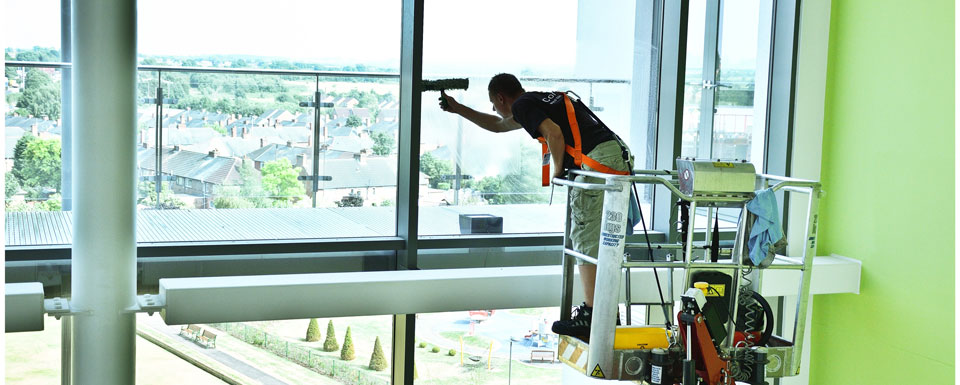
As we highlighted in our article about choosing a window cleaning round, buying a round can be a sensible option if you’re looking to set up or grow a window cleaning business rapidly. However, like any investment, there are inevitable risks involved. What if the round doesn’t generate the level of income the seller says it does? What if half the customers aren’t real or don’t pay? What if lots of customers cancel as soon as I take on the round?
These are all natural and very important concerns for anyone to have when buying a window cleaning round. Whilst you can never completely eliminate all risk, the following steps can help you to ensure that you are investing your money in a good quality, lucrative window cleaning round:
Ask for proof of the rounds revenues
You need to see written evidence that the round is earning what you’re expecting. Don’t be afraid to ask for copies of accounts and even bank statements – the seller is not obliged to provide them but if the sale is genuine, why wouldn’t they provide as much information as possible? If they refuse to provide any information or can’t, it raises big questions over the validity of the round. Once you have the records, check them carefully and make sure everything adds up. Confirm they’ve been getting paid the full value of the round each month – substantial gaps there could be genuine but might indicate bad payers and poor debt management.
Agree a transfer strategy
One of the biggest concerns for any buyer is customer drop-off. The best way to minimize this risk is to agree in advance exactly how you are going to transfer the round and how you will communicate this to the customers. Ensure that the rounds original owner, not you, communicates the transfer. At the very least, all customers should be informed in writing – but you should both do more than that – onto our next step.
Complete the round with the owner
The best possible transfer strategy, if circumstances allow, is to work the entire window cleaning round once with the owner. You want to do this before you have fully committed to purchasing the round, so you need to negotiate for this to happen before you’ve handed over any substantial amounts of cash – you can do this either on the basis of a deposit or commonly, some kind of arrangement to divide the earnings. Firstly, it proves the rounds full existence is as described. Secondly, it gives the owner the opportunity to introduce you as their replacement, allows the customers to meet you in person and gives them the chance to raise any objections at that point. You’ll also pick up vital information about your customers that will enable you to carry on providing the same service they had before.
If working the round is not possible, you should arrange to call on the entire round together to communicate the transfer and make the introduction. As a last resort, where customers are not in or available, the seller can rely on secondary methods like telephone calls, emails and a transfer letter.
Negotiate a staged payment
Don’t pay for the round in one lump sum. Make a part payment in advance, and complete the payment in one or two installments each time you complete the round. This ensures the earning potential is as promised and allows you to hold back payment should any issues arise. Most decent sellers will either expect or offer this.
Agree an ‘acceptable’ level of customer drop off
It’s key to understand that losing some customers in the transfer of a window cleaning round is inevitable, but it shouldn’t be enough to have a serious impact on the rounds earning potential – around 5% is probably normal. Generally, it’s down to you as the buyer to swallow the loss up to that point, but agree what happens if the drop-off starts to creep over that. For example, you could agree to take the value of any losses over the 5% mark off your final installment, or perhaps you can meet halfway and take off half the cost. Generally speaking though, if you have managed the handover properly, your drop-off shouldn’t be unmanageable.
Exercise caution with commercial business
Be careful when buying rounds that consist of large amounts of commercial work. It can be lucrative but, even with well established rounds, there tends to be less loyalty with commercial clients and work can be lost overnight. Commercial work also tends to be higher value and lower volume, so the loss of one job has a far bigger impact on your earnings. In addition, check any commercial work that is under contract – make sure that the contracts can be transferred to you before purchasing, and that they are not about to expire or go up for re-tender. You do not want to have to bid for work you have purchased, and the fact that you have bought it will likely mean very little to the client
Put the agreement in writing
It’s vitally important to outline the purchase in writing and have both parties sign a contract – do not rely on verbal agreements. It might seem like overkill, but the same process would apply to any business purchase. Outline, even itemise, what has been purchased, and for how much as well as which of the above steps have been agreed. For larger rounds and bigger investments, it would be a good idea to get help with this from a solicitor for added peace of mind.
If you take these simple precautions, you are minimizing your risk, and drastically increasing the chances of finding an honest seller and a stable, well maintained and lucrative round. Buying a window cleaning round using these methods is an excellent way of quickly obtaining and adding to your existing business and boosting your revenues.
Header image provided by Concept

